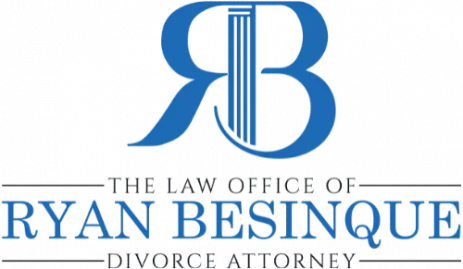 New York divorce lawyer Ryan Besinque (https://www.besinquelaw.com/is-new-york-a-community-property-state/) of the Law Office of Ryan Besinque recently released an article titled “New York is Not a Community Property State.” The article delves into the topic of community property states and how they differ from the laws governing marital property in New York.
New York divorce lawyer Ryan Besinque (https://www.besinquelaw.com/is-new-york-a-community-property-state/) of the Law Office of Ryan Besinque recently released an article titled “New York is Not a Community Property State.” The article delves into the topic of community property states and how they differ from the laws governing marital property in New York.
In the article, the New York divorce lawyer provides a detailed explanation of community property laws and how they function. She notes that community property states typically divide marital assets equally between the two spouses in the event of a divorce, whereas in New York, the division of marital property is based on a set of equitable distribution laws.
The New York divorce lawyer clarifies that in New York, marital property is divided based on a variety of factors, including the length of the marriage, each spouse’s income and earning potential, and the financial contributions made by each spouse during the marriage. She explains that this approach allows for a more fair and equitable distribution of assets, as it takes into account the unique circumstances of each individual case.
“Many people assume that New York is a community property state, but that is simply not the case,” Besinque explains. “It’s important for individuals to understand the laws governing marital property in their state, as it can have a significant impact on the outcome of their divorce proceedings.”
Besinque also provides insight into the different types of property that may be subject to division in a divorce, including real estate, retirement accounts, and personal property. She notes that it’s important for individuals to keep thorough records of their assets and financial transactions throughout the marriage to ensure that they receive an equitable distribution of property in the event of a divorce.
In New York, the Uniform Disposition of Community Property Rights at Death Act has been adopted, with the intention of safeguarding community property ownership rights for each spouse who relocates from a community property state to a non-community property state. Prior to the implementation of equitable distribution, property divisions were determined solely based on property titles, regardless of whether one spouse paid for the mortgage or if one was a homemaker.
Furthermore, the lawyer adds that in most cases, the accumulation of marital debts is attributed to either spouse during their marriage, and as such, they are viewed as equal obligations of both parties. However, there are some exceptions to this rule. If one spouse incurs debts that are not considered marital, such as secret purchases made during extramarital affairs, then such debts will likely be the sole responsibility of the offending party.
Lastly, Besinque emphasizes the importance of seeking out the advice of a qualified divorce lawyer who is familiar with the laws governing marital property in their state. “Navigating the complex landscape of divorce proceedings can be incredibly overwhelming, but having an experienced divorce lawyer on your side can make all the difference,” she says.
About the Law Office of Ryan Besinque:
Ryan Besinque is a New York divorce lawyer with extensive experience in all areas of family law, including divorce, child custody, and spousal support. He is committed to providing his clients with compassionate and effective representation and has a proven track record of achieving favorable outcomes for his clients.
Source: https://thenewsfront.com/new-york-divorce-lawyer-ryan-besinque-educates-on-community-property-state/
About The Law Office of Ryan Besinque
Divorce can be a long and challenging process. The experience you have can be entirely dependent on the attorney you retain to advise and guide you. At The Law Office of Ryan Besinque, no matter what difficulties you may be…
Contact The Law Office of Ryan Besinque
115 W 25th St 4th floorNew York
NY 10001
United States
(929) 251-4477

